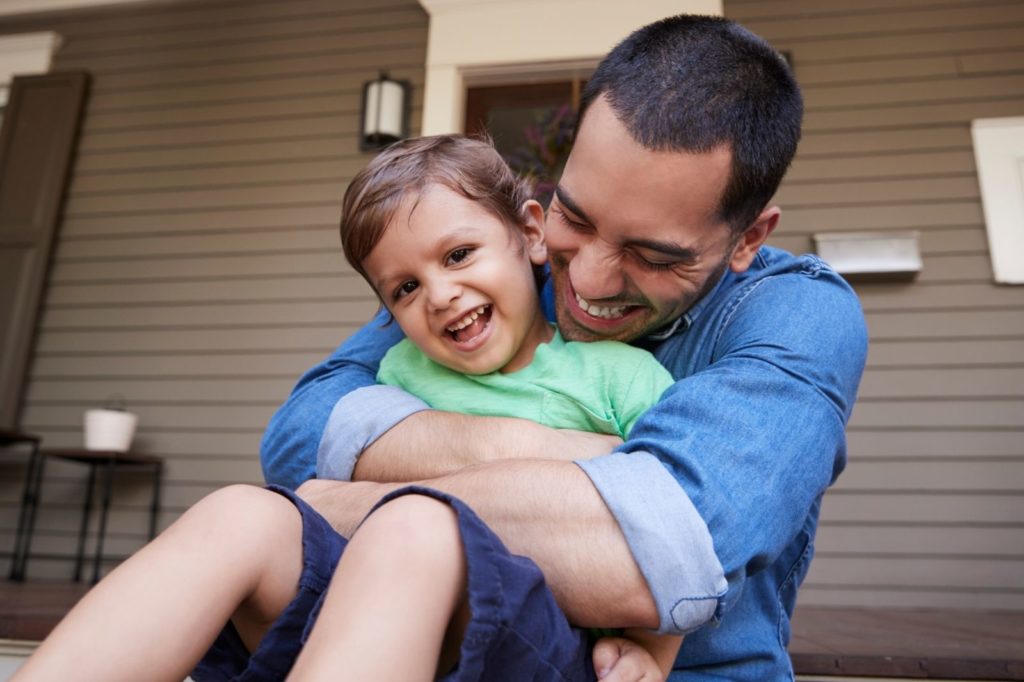Let’s face it: Labels are useful. For consumers, labels can point us to a trusted brand, or give us important information about how to care for a new article of clothing, or tell us what kinds of nutrients are in the food we eat.
But children are not new shoes or breakfast cereals. Every child is unique, with special needs, abilities, and strengths. Learning how to focus on those strengths can be critical when parents talk to their children about mental health conditions.
Our journey to a mental health diagnosis
For many parents, starting down the path of psychiatric care is intimidating and even frightening. My son Eric’s diagnostic journey was a kind of roulette, played with acronyms like ASD, ADHD, ODD, and IED. Each new diagnosis was accompanied by medications with sometimes powerful side effects.
Aside from the challenges of managing my child’s condition — with behaviors that included explosive and unpredictable rage — I worried about the impact that all of these labels would have on my child’s life. Would Eric be able to have friends? Would teachers judge him before they even met him? How would he ever transition to adulthood?
These concerns are shared by parents, peers, and providers, which may explain why many symptomatic children are not officially diagnosed. But the U.S. Centers for Disease Control notes that “Early diagnosis and appropriate services for children and their families can make a difference in the lives of children with mental disorders.”
This was definitely true in Eric’s case. Once he was diagnosed with bipolar disorder, type 1 at the age of 13, everything changed for our family. I still remember the numerous conversations Eric and I had about his illness, starting when he was very young. After the bipolar diagnosis, Eric was skeptical at first: “Last week it was autism spectrum disorder; this week, it’s bipolar disorder,” he said. “Same problem, new label.”
But the new label—and the medication that came with it—helped. For six months, he had no violent behaviors. Six months stretched to a year, then two. Eric went back to a mainstream high school. He made friends. He served on student council and gave a TEDx talk. In June 2018, he graduated from high school and is now at college on a full scholarship, where he is majoring in sociology.
Why the diagnostic label is so powerful
As anyone living with bipolar disorder knows, those years were not all sunshine and roses. But the diagnosis gave us a path, and by following that path, building his supports and skills, and taking the right medication, Eric has been able to manage his maladaptive behaviors and create the life he deserves.
UCLA’s Mental Health in Schools Program lists some powerful positive effects that the right diagnostic label can have for children and their parents:
- Parent communication with care providers, insurance companies, and school officials is much easier, because a diagnosis is “verbal shorthand.”
- Knowledge about the illness is empowering, which helps parents to frame their child’s behaviors that may have seemed confusing or even scary in a more positive way; e.g., “My child behaves differently, not badly.”
- Children can avoid blaming themselves for acting differently when they understand how their condition affects them.
- A diagnosis provides hope for effective treatment and management of the condition.
While many people express concern that “labeling” a child may harm the child, in a 2011 study about diagnostic labels and stigma for youth ages 12-25, Wright, Jorm and MacKinnon found that “use of accurate psychiatric labels by young people is seldom associated with stigma and may assist young people by reducing perceptions of weakness.” However, they also caution that community education about psychosis could contribute to stigma if false beliefs about violence and mental illness were not addressed.
What kids need to hear about their diagnosis
As I was writing this article, I asked Eric what children needed to hear. “Parents should understand that a mental health diagnosis can be like a superpower. But just like Spiderman, with great power comes great responsibility,” Eric told me.
He added that communicating the difficulties that will accompany a diagnosis is really important. “It will take some work to manage and control your behaviors,” he said. “But when you do that work, you’ll be stronger and more resilient than most people.”
Most important, Eric said, parents should reassure their child that there’s nothing “wrong” with having a diagnosis — lots of people have health conditions, and they get through life just fine.
“Just try to be kind and understanding,” he said. “Make sure they know that no matter what the problem is, you’re there for them to help them get through it. No superhero can do everything alone.”










